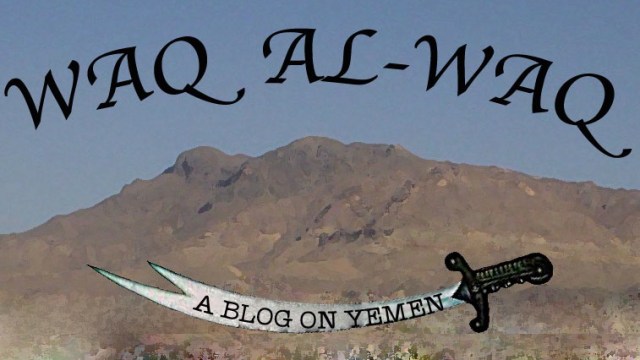Yemen’s Election: Where the Voters Turnout, not Voter Turnout

Tomorrow, February 21, will mark the last day of President Ali Abdullah Salih’s nearly 34 years in power, at least officially.
In his place, Yemenis will head to the polls tomorrow to elect his long-serving vice president, Abd Rabu Mansur Hadi, in a curious one-man election. Hadi’s is the only name on the ballot, which is not technically a referendum since Yemen’s won’t have the opportunity to vote “no.”
The international community will likely attempt to present this as a “peaceful” end to Yemen’s uprising, one that accomplished through the ballot box what couldn’t be done through violence. (Indeed as I write, this is exactly what John Brennan is claiming in Yemen.) But this is, at best, a misleading representation of what is happening in Yemen.
Yemen’s uprising is unfinished. It has neither succeeded or failed. Salih is out of office, but not necessarily out of power. His sons and nephews continue to have a stranglehold on large parts of the security services – a key issue for protesters. How this will end is still very much an open question as all the players are still present and accounted for in Yemen.
The one-man election has been a controversial approach since it was announced late last year after Salih signed the GCC deal, which gave him and his loyalists immunity in exchange for stepping down. And in recent weeks several key figures, including Sadiq al-Ahmar and Tawwakul Karman, have at leas tacitly endorsed the election and Hadi’s ascension to the country’s top office.
However, key holdouts, still exist. Most notably, the Huthis in the north, who have said that they would boycott the elections and the secessionists in the South, who have also said that they would boycott the vote.
Both were left out of the political bargaining that went into Hadi’s selection as the consensus compromise candidate, and it shouldn’t be a surprise that both are threatening a boycott. (There have been several mistakes over the past year in Yemen, but leaving the Huthis and the Southern Movement out of the political process is one that will haunt the country for the foreseeable future.)
The Huthis are a fairly unified movement, and few doubt their ability to follow through on their threats of a boycott. The Southern Movement, however, is a different story. A fractured, nebulous grouping of several movements, they are mostly united by a shared hatred of what they call the north and northern occupation. Whether or not the leaderships’ various calls for a boycott will be adhered to remains, at least in my mind, a key question on the eve of the election.
All of this is why, for me, the most telling stat of the election will not be voter turnout – with only one candidate on the ballot most expect it to be low – but rather where the voters turnout. Are people in Sad’ah, Aden, Abyan, Shabwa and al-Baydha coming out to vote, or is this an election that is centered around Sanaa?
There are a lot of international journalists in Yemen – including some very talented ones like Kelly McEvers, Laura Kasinof, Mohammed Jamjoom, Hugh Naylor in addition to the cluster of experienced writers like Tom Finn, Iona Craig, Adam Barron and others who have spent a great deal of time in Yemen recently – and my hope is that at least some of them will cover the election from outside of the capital. Because it is there, in Yemen’s outlying regions, where the country’s immediate future is being written.
Another thing to keep in mind is that Hadi is from the south, from Abyan, where his brother is still a top security official. But his southern heritage has done little to appease secessionists, who view him as a traitor. During the 1994 Civil War, the last time the south attempted to secede, Hadi defected joining Ali Abdullah Salih, who rewarded him by naming him vice president. Hadi became known locally as an al-zumara southerner – someone who joined the enemy in order to survive. And that, for many, has been Hadi’s legacy: a political survivor.
That legacy will be put to the test in the coming months as Salih returns from surgery in the US, as his sons and nephews continue to hold onto their positions in Yemen’s security services, as the al-Ahmar brothers plot their next move, as Ali Muhsin decides whether to rejoin a restructured military, as the Southern Movement continues to make noise, as the Huthis solidify control in the north and as AQAP and Ansar al-Shariah continue to implement their version of Islamic law in parts of Abyan and Shabwa – oh and the economy is falling apart.
In many ways, Hadi is at the weak center of a web of conflicting alliances, and he is surrounded by political predators, each of whom thinks he is strong enough to manipulate a weak president in an effort to come out on top.
Salih’s two predecessors as president were assassinated within nine months of one another. Salih himself mastered the game of snake dancing, now it remains to be seen whether Hadi can do the same. The odds are long indeed.





